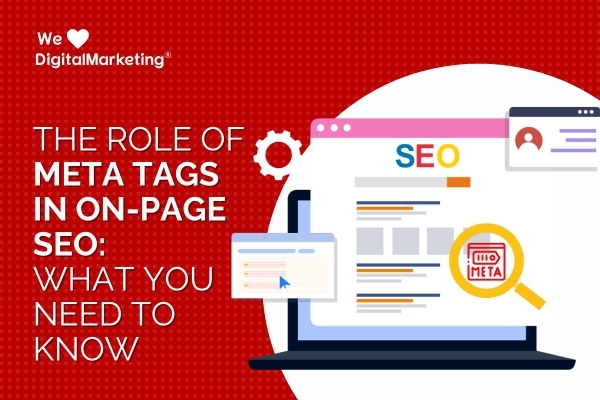
Meta tags are an overlooked element of On-page SEO, yet essential for enhancing your website’s visibility and performance. These snippets of code provide valuable information to search engines, helping them understand your content and, in turn, influencing how your pages are indexed and ranked.
In this blog, we’ll explore the role of meta tags in on-page SEO, why they matter, and how you can optimize them to improve your website’s search engine performance.
Meta tags are small snippets of HTML that sit in a webpage's <head>. While they're not to be seen in view on a page, they're an important way in which a site communicates with search engines.
The main types of meta tags include:
Title tags are among the most important on-page SEO elements. They act as clickable headlines in SERPs and hence clearly indicate what the page is all about to users and search engines.
Though meta descriptions aren't a ranking factor themselves, they will move CTR via the summary of page content in the SERP snippet.
Meta keywords used to be a huge part of SEO but are now largely irrelevant. Most search engines, including Google, don't pay much attention to them, so they aren't much use towards SEO now.
These tags tell search engines how to crawl and index your content in a way that makes it possible for you to have your discretion on what they should and should not index.
It is an important meta tag to make your site mobile-friendly for user experience and SEO purposes.
a) Meta tags, more specifically, title and meta description tags, are essential in helping an SE understand what is on your page and the context it is in, thus influencing its indexing and ranking.
b) A very well-optimized title tag and meta description can increase your page's CTR tremendously. Compelling tags extract more clicks from SERPs that drive more significant traffic to a site.
c) Search engines often use your title tag and meta description to create the snippet that appears in search engine result pages (SERPs). These snippets are crucial for grabbing users' attention and encouraging them to visit your site.
d) Meta robots tags allow controlling search engine crawling on a site and indexing in SERPs. As a result, more granular control over the SEO strategy is achieved.
Although meta tags represent a really small part of on-page SEO, they are the prominent pointers in how search engines and users will view your website. Making sure you optimize your title tags, meta descriptions, and other meta attributes will help your site grow in visibility, raise click-through rates, and give users an overall great experience. Optimizing meta tags means investing little time, yet doing so may mean quite a difference in any of your SEO efforts.
Contact us at our website for more.